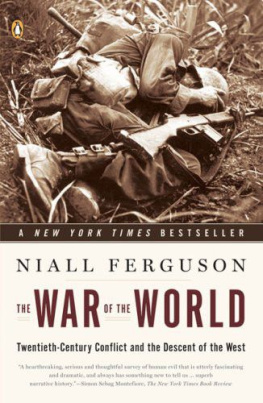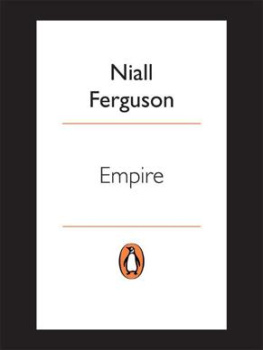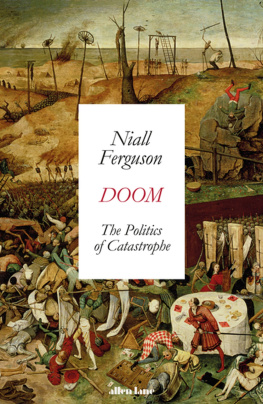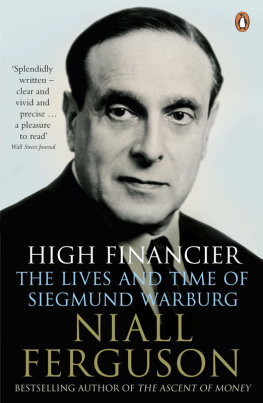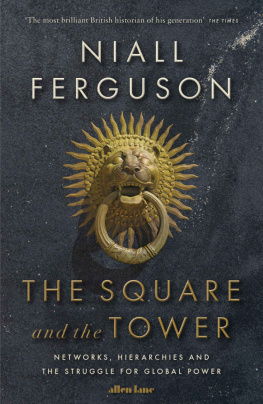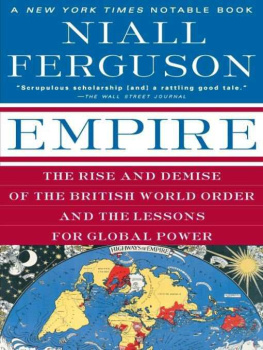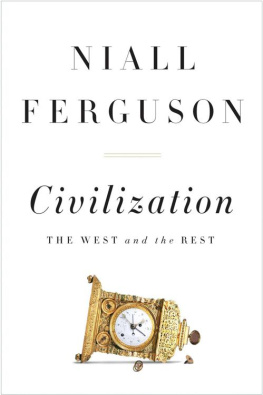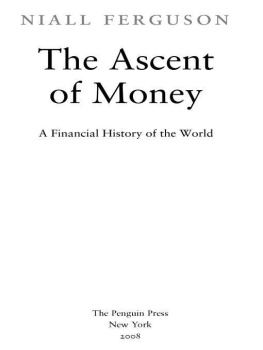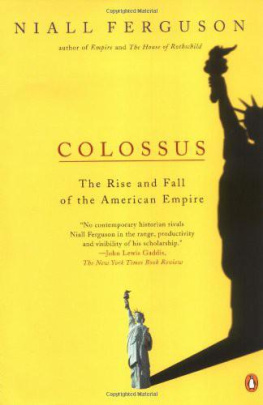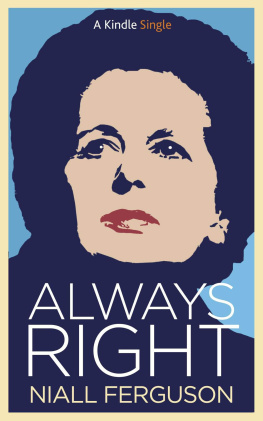Niall Ferguson - The Cash Nexus: Money and Politics in Modern History, 1700–2000
Here you can read online Niall Ferguson - The Cash Nexus: Money and Politics in Modern History, 1700–2000 full text of the book (entire story) in english for free. Download pdf and epub, get meaning, cover and reviews about this ebook. year: 2013, publisher: Penguin, genre: Politics. Description of the work, (preface) as well as reviews are available. Best literature library LitArk.com created for fans of good reading and offers a wide selection of genres:
Romance novel
Science fiction
Adventure
Detective
Science
History
Home and family
Prose
Art
Politics
Computer
Non-fiction
Religion
Business
Children
Humor
Choose a favorite category and find really read worthwhile books. Enjoy immersion in the world of imagination, feel the emotions of the characters or learn something new for yourself, make an fascinating discovery.
- Book:The Cash Nexus: Money and Politics in Modern History, 1700–2000
- Author:
- Publisher:Penguin
- Genre:
- Year:2013
- Rating:4 / 5
- Favourites:Add to favourites
- Your mark:
The Cash Nexus: Money and Politics in Modern History, 1700–2000: summary, description and annotation
We offer to read an annotation, description, summary or preface (depends on what the author of the book "The Cash Nexus: Money and Politics in Modern History, 1700–2000" wrote himself). If you haven't found the necessary information about the book — write in the comments, we will try to find it.
The Cash Nexus is the controversial history of moneys central place in the world, from Niall Ferguson, bestselling author of Empire and *Civilization*
Generations of historians have shied away from the truth behind the cliche: money makes the world go around. International bestseller Niall Ferguson answers the big questions about finance and its crucial place in bringing happiness and despair, warfare and welfare, boom and crash to nations buffeted by the onward march of history. Starting in 1700 and ending today, The Cash Nexus is a dazzling, powerful and controversial explanation of modern world history and the fundamental force that lurks behind it all.
About the author:
Niall Ferguson is one of Britains most renowned historians. He is the author of Paper and Iron, The House of Rothschild, The Pity of War, Empire, Colossus, The War of the World, The Ascent of Money, HighFinancier, Civilization and The Great Degeneration. He has written and presented six highly successful television series for Channel Four: Empire, American Colossus, The War of the World, The Ascent of Money, Civilization and China: Triumph and Turmoil.
**
From Publishers WeeklyIn a work that neatly marries the subjects of his previous books, Ferguson, who made his name with controversial popular histories of World War I (Pity of War, 1999) and the Rothschild banking empire (House of Rothschild, 1998), continues to challenge conventional wisdom. Here, he argues that the enormous expense of war, which forces governments into fiscal innovation, is the primary agent of financial change and its political repercussions, which sometimes include starting new wars. In Fergusons view, political crises defined broadly to include those spurred by religion, law and culture cause both wars and financial disasters; the ensuing political outcomes determine the long-term economic fallout. Economic events, on the other hand, affect politics in indirect and unpredictable ways. Emphasizing the nuances and exceptions to his argument, he marshals economic statistics to support it, though he does not discuss alternative explanations for financial change. Despite frequent, jarring digressions into the minutiae of 1980s British politics and in praise of Thatcherism, the book is lucidly argued. But for a history that focuses so much on war, it includes little discussion of the military. Most controversially, Ferguson challenges the orthodox assumption that the world is headed toward a peaceful, prosperous and democratic global future. Economic success does not always lead to stability, he argues, and economic freedom is neither necessary for economic growth nor sufficient for political freedom. Nor, he warns, will economic globalization necessarily lead to greater economic or political cooperation. (Mar.) Forecast: This book will be more talked about than read, though it will attract serious readers. Like Fergusons The Pity of War, its merits should outlive the controversy over its predictions.
Copyright 2001 Reed Business Information, Inc.
In this scholarly tome, Ferguson (history, Jesus Coll., Oxford; The Pity of War) presents a heavily noted, high-level economic analysis of the impact of economic trends on political change. As he thoroughly analyzes the nexus between economics and politics, he delves deep into the complex relationship among economic principles and international war, political changes in major countries, social liberalization, and national demographics. He challenges the prevailing principles of well-known author Paul Kennedy (The Rise and Fall of the Great Powers), specifically that economic change is the prime mover of political change, contending rather that the conflicting impulses of sex, violence, and power are together more powerful than money. In the books many dense chapters, Ferguson argues that political institutions have often dominated economic development, and he deftly integrates historical trends and eras, multiple economic principles and theory, as well as modern economic growth and development. This very complex economic analysis will well serve larger university libraries supporting higher-level study in economics, especially international economic theory. Dale Farris, Groves, TX
Copyright 2001 Reed Business Information, Inc.
Niall Ferguson: author's other books
Who wrote The Cash Nexus: Money and Politics in Modern History, 1700–2000? Find out the surname, the name of the author of the book and a list of all author's works by series.


